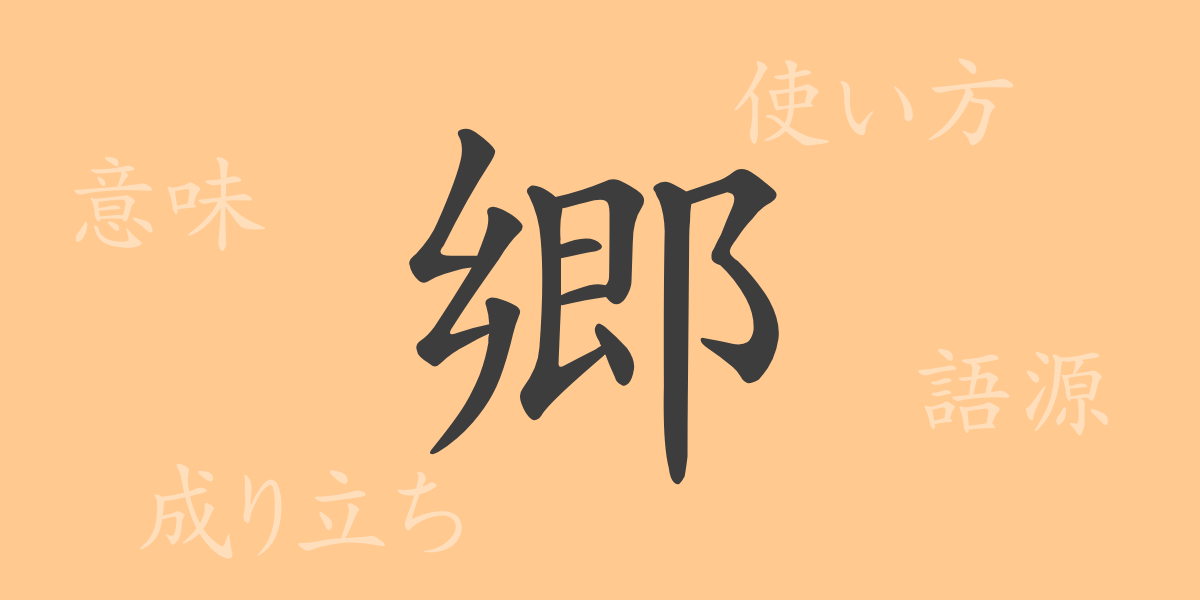Kanji, the unique characters deeply rooted in Japanese culture, hold significant value beyond mere symbols. Among them, the kanji “郷(きょう)” is widely used in our daily lives, with its meaning and usage evolving over time. This article delves into the origins, meanings, and usages of “郷(きょう)”, along with its readings, stroke count, and radical. Additionally, we will explore idioms, expressions, and proverbs that incorporate this kanji.
Origin of 郷(きょう)
The kanji “郷(きょう)” originated in ancient China. It combines “邑(ゆう)” (a character meaning settlement or city) with the pictogram “垚(ぎょう)”, which represents boundaries around the land. Together, they signify a settlement with boundaries, referring to rural villages or towns on the outskirts. Over time, “郷(きょう)” came to represent concepts like homeland and native place, deeply ingrained in people’s hearts.
Meaning and Usage of 郷(きょう)
The kanji “郷(きょう)” has multiple meanings, primarily referring to “hometown,” “suburb,” or “region.” It is used to express feelings of nostalgia for one’s distant homeland, as in “郷愁(きょうしゅう)”, or to refer to the unique culture and climate of a particular region, as in “郷土(きょうど).” This kanji appears in place names, proper nouns, and metaphorical expressions.
Readings, Stroke Count, and Radical of 郷(きょう)
The kanji “郷(きょう)” is widely used as a common kanji in Japan.
- Readings: The on’yomi (Chinese reading) is “キョウ(きょう)”, and the kun’yomi (Japanese reading) is “さと(さと)”.
- Stroke Count: “郷(きょう)” consists of 11 strokes.
- Radical: The radical is 邑(むら) which means village or settlement.
Idioms, Expressions, and Proverbs Using 郷(きょう)
Many idioms, expressions, and proverbs in Japanese include the kanji “郷(きょう)”. For example, the proverb “郷に入っては郷に従え(ごうにいってはごうにしたがえ)” teaches that one should follow the customs and rules of the place they are in. The idiom “郷愁(きょうしゅう)” expresses the poignant longing for one’s hometown. Other examples include “郷士(ごうし)” meaning local samurai, “郷党(きょうとう)” meaning people from the same village, and “郷里(きょうり)” meaning hometown.
Conclusion on 郷(きょう)
The kanji “郷(きょう)” symbolizes concepts deeply connected to people’s emotions and lives. Words like “郷愁(きょうしゅう)” and “郷土(きょうど)” reflect the special feelings people have for their native places, showcasing the richness of Japanese expression. Understanding the history and meaning of each kanji is crucial for appreciating the language’s background and fostering deeper communication.

























